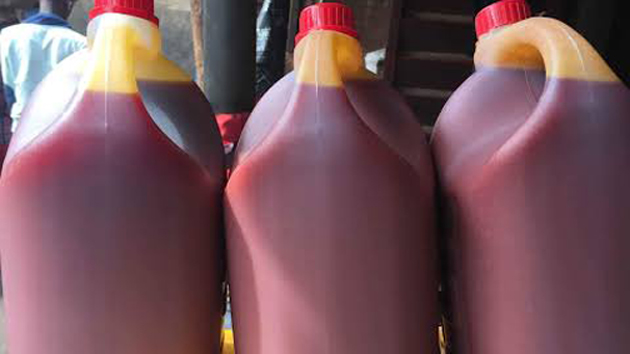The Federal Government on Wednesday inaugurated an inter-ministerial committee on oil palm traceability to curb the over $600 million spent annually on importing oil palm into the country.
The Minister of Agriculture and Food Security, Senator Abubakar Kyari, disclosed this in Abuja at the inauguration of the National Palm Oil Traceability Framework and Inter-Agency Committee under the National Initiative for Sustainable and Climate-Smart Oil Palm Smallholders (NISCORPS) in Nigeria, organised by Solidaridad with the support of the Dutch government.
He noted that to bridge the two million metric tonnes demand gap, the country spends about $600 million importing oil palm; hence, there is an urgent need for transformative reforms and innovative frameworks that can reverse this trend, boost local production, and restore Nigeria’s leadership in palm oil.
While emphasising the need to produce palm oil responsibly, transparently, and sustainably, the minister stressed that a strong national traceability system is not a luxury but a necessity to help meet global market demand and enhance domestic industry standards.
The traceability system would also empower smallholder farmers, boost GDP and export revenue, support industrial growth, curb illicit trade, and reduce waste.
The minister, represented by Permanent Secretary Dr Marcus Ogunbiyi, stated that the National Interagency Committee on Palm Oil Traceability has been mandated to design and oversee the implementation of Nigeria’s Palm Oil Traceability Roadmap.
He said, “This committee will serve as the driving force behind our traceability system, fostering coordination across
Federal and state government agencies, private sector actors, farmers’ cooperatives and processors, market associations, development partners and donors.”
Speaking at the event, the Programme Manager for Solidaridad, Kenechukwu Onukwube, said the initiative aligns with the National Agricultural Technology and Innovation Policy (NATIP) 2022–2027 and will help build a more effective and accountable palm oil sector.
“The inauguration of this committee is critical for Nigeria to have an effective traceability system for palm oil and a driving policy that aligns with national goals,” Onukwube said.
He emphasised that the country’s domestic production is still plagued by inefficiencies and lacks the necessary systems to track palm oil from farm to market. “With a traceability framework in place, we expect to see greater efficiency across the value chain—from production and processing to marketing and distribution,” he stated.
He disclosed, with the support of the Kingdom of the Netherlands and the United Kingdom government, that the organisation piloted a proof-of-concept traceability model in four states: Akwa Ibom, Cross River, Enugu, and Kogi. He also added that other partners, such as the Sustainable Trade Initiative (IDH), are working in these states to implement similar climate-smart oil palm production systems.
According to Onukwube, Solidaridad has played a central role in creating awareness around the importance of traceability in the oil palm subsector and has facilitated alignment among stakeholders to push for a unified national policy.
He noted that while the traceability system has already been developed in the pilot states, its success depends on national-level coordination. “These states cannot operate in isolation. We are now working closely with the Federal Ministry of Agriculture to ensure that this framework is implemented nationwide,” he said.
The committee, inaugurated by the ministry, will be supported by Solidaridad in understanding the technical requirements and navigating the implementation stages. Stakeholders were also briefed on the key challenges and opportunities ahead in making the palm oil sector “future-ready” and competitive both locally and globally.







